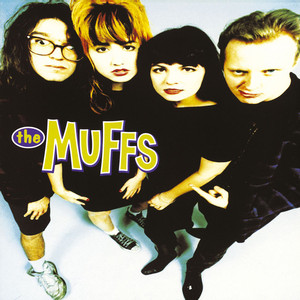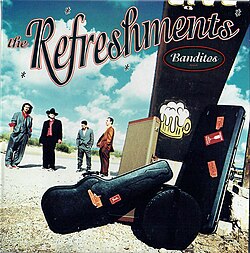 In 1995, singer-songwriter Poe made a striking entry into the world of alternative pop with her debut single “Angry Johnny.” From the very first notes, the song establishes an atmosphere of tension and emotional turbulence, blending elements of rock, trip-hop, and electronic production in a way that feels simultaneously edgy and intimate. Poe’s voice—a mixture of vulnerability, defiance, and theatricality—anchors the track, inviting listeners into a narrative filled with heartbreak, frustration, and the complexity of modern relationships. Unlike conventional pop songs of the mid-1990s, “Angry Johnny” does not shy away from emotional discomfort. Instead, it leans into the raw, often messy realities of love, capturing feelings that many artists of the time glossed over. Its lyrical sharpness, layered production, and darkly playful sensibility helped Poe carve a unique niche, standing out in an era dominated by grunge, emerging trip-hop, and polished mainstream pop.
In 1995, singer-songwriter Poe made a striking entry into the world of alternative pop with her debut single “Angry Johnny.” From the very first notes, the song establishes an atmosphere of tension and emotional turbulence, blending elements of rock, trip-hop, and electronic production in a way that feels simultaneously edgy and intimate. Poe’s voice—a mixture of vulnerability, defiance, and theatricality—anchors the track, inviting listeners into a narrative filled with heartbreak, frustration, and the complexity of modern relationships. Unlike conventional pop songs of the mid-1990s, “Angry Johnny” does not shy away from emotional discomfort. Instead, it leans into the raw, often messy realities of love, capturing feelings that many artists of the time glossed over. Its lyrical sharpness, layered production, and darkly playful sensibility helped Poe carve a unique niche, standing out in an era dominated by grunge, emerging trip-hop, and polished mainstream pop.
The song tells the story of a volatile relationship, centering on a character—Johnny—whose anger and unpredictability dominate the dynamics between him and the narrator. Poe’s lyrics are direct yet metaphorical, blending storytelling with emotional commentary. The chorus, punctuated by the repeated refrain of “Johnny, you’re so angry,” conveys frustration and helplessness, while her vocal performance ranges from sardonic mockery to piercing sincerity. Musically, the track combines crisp percussion, hypnotic loops, and atmospheric synthesizers to evoke tension and a sense of urgency. It’s a song that rewards multiple listens, revealing new emotional nuances and sonic details with each encounter.
Poe: A Singular Voice in 1990s Pop
Poe, born Anne Decatur Danielewski, emerged at a time when alternative music was embracing both introspection and sonic experimentation. Unlike many contemporaries, Poe wrote, co-produced, and performed her own material, giving her music a personal authenticity that resonated with listeners. “Angry Johnny” exemplifies her talent for crafting emotionally complex pop songs that straddle genres—blending elements of rock, electronic beats, and trip-hop atmospherics without ever losing the narrative focus.
Her approach to music was highly narrative-driven. “Angry Johnny” reads almost like a short story set to music, complete with character development, dialogue, and emotional arcs. This storytelling sensibility distinguished Poe from the more image-driven teen pop or grunge acts of the era. She was not simply performing emotions; she was creating them, inviting listeners to inhabit the world she constructed with voice, lyrics, and instrumentation.
Lyrics and Themes
The lyrics of “Angry Johnny” reveal a relationship fraught with tension, miscommunication, and emotional imbalance. Lines like “I am the thing that makes you nervous / I am the warning sign you never saw” position the narrator as both observer and participant, someone intimately aware of the dysfunction yet unable to extricate herself from its pull. The song examines themes of anger, emotional volatility, and the struggle for autonomy within intimate relationships.
Yet the song is more than a personal narrative; it speaks to broader experiences of emotional turbulence and the negotiation of power within human connections. Poe’s storytelling is candid and sometimes confrontational, portraying anger not as an abstract emotion but as a tangible, almost character-like presence in the relationship. The song’s titular “Johnny” functions both as a literal figure and a symbol of emotional unpredictability, frustration, and the darker side of desire.
Musical Composition and Style
Musically, “Angry Johnny” is a rich tapestry of sounds that reflect the song’s emotional complexity. The percussion is tight and precise, driving the song forward while maintaining a sense of controlled chaos. Layered synthesizers and subtle electronic effects provide a darkly atmospheric backdrop, complementing Poe’s dynamic vocal delivery. The arrangement balances minimalism with texture, ensuring that the lyrics and narrative remain front and center while the instrumentation enhances emotional resonance.
Poe’s vocal performance is central to the song’s impact. She alternates between whispered vulnerability, sardonic humor, and assertive declarations, conveying the multifaceted nature of human emotion. This vocal versatility, paired with the song’s layered production, creates a sonic landscape that mirrors the tumultuous relationship at the heart of the lyrics. The repetition of key phrases, such as the chorus line “Johnny, you’re so angry,” reinforces the cyclical nature of the emotional conflict, emphasizing the inescapable tension between the characters.
The song’s structure is unconventional in pop terms, blending verse-chorus repetition with spoken-word elements and musical interludes that heighten the storytelling aspect. By subverting expectations of traditional pop songwriting, Poe crafts a track that feels intimate, unpredictable, and emotionally authentic, drawing listeners into the narrative rather than simply presenting a catchy hook.
Reception and Cultural Impact
Upon its release, “Angry Johnny” garnered attention for its distinctive style and narrative depth. While it did not achieve massive commercial chart success, the song quickly gained a cult following and established Poe as a singular voice in 1990s alternative pop. Critics praised the track for its bold combination of storytelling, genre-blending production, and emotionally candid lyrics, noting Poe’s ability to create music that was both artistically ambitious and emotionally resonant.
The song also resonated with a generation navigating the complexities of young adulthood, relationships, and self-expression. Its frank portrayal of anger and emotional conflict offered listeners a form of validation, a reminder that messy emotions and relational challenges were common and worth exploring through art.
Visual Representation and Music Video
The music video for “Angry Johnny” further enhanced the song’s impact. Featuring surreal and symbolic imagery, the video amplifies the track’s tension and emotional nuance. Poe’s performance blends theatricality with authenticity, capturing the duality of vulnerability and defiance inherent in the song. The visual narrative complements the lyrics, providing additional layers of meaning and creating a cohesive artistic statement. In an era when MTV was a dominant force in popular music, the video helped cement Poe’s reputation as a visually and musically innovative artist, capable of blending performance, storytelling, and emotional depth.
Legacy and Influence
“Angry Johnny” remains a defining track in Poe’s catalog and a touchstone of 1990s alternative pop. Its influence can be seen in subsequent artists who blend narrative storytelling, genre experimentation, and emotional candor, from Tori Amos to Fiona Apple. The song’s combination of dark humor, emotional honesty, and innovative production continues to resonate with listeners, demonstrating that pop music can be intellectually and emotionally sophisticated without sacrificing accessibility or melodic appeal.
Moreover, “Angry Johnny” exemplifies the enduring power of music to convey complex emotional states. Poe’s willingness to confront anger, frustration, and relational tension head-on creates a song that is cathartic, relatable, and enduring. It remains a testament to the potential of pop music to engage with difficult emotions in ways that are compelling, memorable, and artistically significant.
Live Performances and Fan Connection
In live performances, “Angry Johnny” retains its immediacy and emotional intensity. Poe’s dynamic stage presence and vocal versatility bring the song to life, allowing audiences to experience both the narrative and the emotional undercurrents in real time. Fans connect not only with the story of Johnny and the narrator but also with the authenticity and courage Poe brings to the performance. The song becomes a shared emotional experience, a space where listeners can explore and validate their own feelings of anger, frustration, and longing.
The track’s live longevity and fan engagement highlight its broader significance as an emotionally intelligent and culturally resonant work. By presenting complex emotions in an accessible and artistically engaging format, Poe created a song that continues to inspire both artists and listeners, fostering a deeper appreciation for emotionally nuanced pop music.
Conclusion: A Darkly Brilliant Debut
Released in 1995, Poe’s “Angry Johnny” stands as a bold and innovative debut single, blending narrative sophistication, emotional intensity, and genre-bending production into a singularly memorable track. Its portrayal of anger, frustration, and relational complexity offers a window into the human experience, articulated through lyrics that are direct, evocative, and emotionally resonant. Poe’s combination of vocal versatility, musical experimentation, and storytelling prowess ensures that the song remains compelling decades after its initial release.
“Angry Johnny” exemplifies the potential of alternative pop to explore difficult emotions while maintaining melodic and structural accessibility. It celebrates the messy, often contradictory nature of human feelings, encouraging listeners to confront rather than avoid their emotional realities. The song’s enduring appeal lies in its authenticity, creativity, and willingness to embrace the shadows of desire and anger, marking Poe as one of the most innovative and emotionally courageous artists of her era.
Through “Angry Johnny,” Poe established herself as a storyteller, a musical innovator, and a voice for those navigating the complexities of modern relationships. Its darkly playful energy, unforgettable hooks, and emotionally honest lyrics ensure that it remains a touchstone of 1990s alternative pop—a song that is as compelling, nuanced, and unforgettable today as it was nearly three decades ago.


